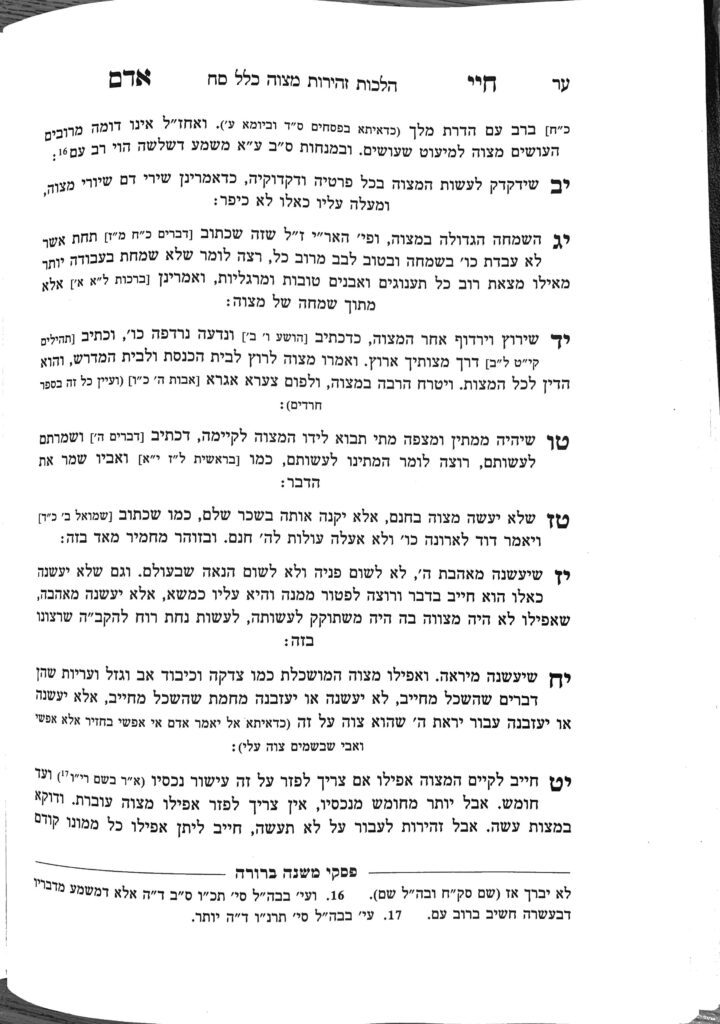We are beginning siman 14, where the Chayei Adam discusses running after a mitzvah. The pasuk says nei’de’ah nirdefa la’daas es Hashem, we should run to gain our awareness of Hashem (Yehoshua 6:3). Another pasuk says derech mitzvosecha arutz, I will run towards your mitzvos (Tehillim 119:32).
The Gemara says that generally, one should not run on Shabbos, because Shabbos is a day in which we are in a state of olam haba, so it is degrading to run. However, the Gemara says that running to the beis hamedrash or beis haknesses is an exception. The Chayei Adam extends this concept to all mitzvos.
The Chayei Adam continues, and writes that lefum tza’ara agra, according to the amount of effort a person invests into a mitzvah is the reward they will receive for it. The same mitzvah performed with difficulty is more valuable than an mitzvah performed with ease.
We need to clarify a few points:
When the Chayei Adam writes yarutz, that one should run after a mitzvah, he is referring to running even before the mitzvah, in preparation for the mitzvah.
When he writes yirdof, he means that one should seek out mitzvos, which he will discuss further in the next two simanim. The idea of being rodef is that one runs after something, out of concern that it does not get lost.
Thus, the Chayei Adam presents two elements: running after a mitzvah to demonstrate desire for it, and running after a mitzvah to demonstrate chashivus hamitzvah. Additionally, one runs to avoid missing the opportunity, which adds another layer of kavod to the mitzvah.
The Chayei Adam adds that while performing the mitzvah, one should expend their efforts to ensure the mitzvah is completed in its totality.
The Chayei Adam writes that one should look in the Sefer Chareidim for further discussion. (It is not clear why, as the Sefer Chareidim does not appear to add anything more than the Chayei Adam.)
The Gemara in Bava Basra says that one should be rodef after tzedakah and chesed. Sefer Nasiach Bechukecha points out that the idea of running after something is the vehicle through which one becomes used to doing it. Running after something demonstrates that one feels confident it will keep presenting itself and they therefore must hurry to be ready for the next opportunity.
Summary
One should run after a mitzvah, both in preparation for the mitzvah and in completing the mitzvah, in order to demonstrate desire for the mitzvah and in order to demonstrate chashivus hamitzvah.



